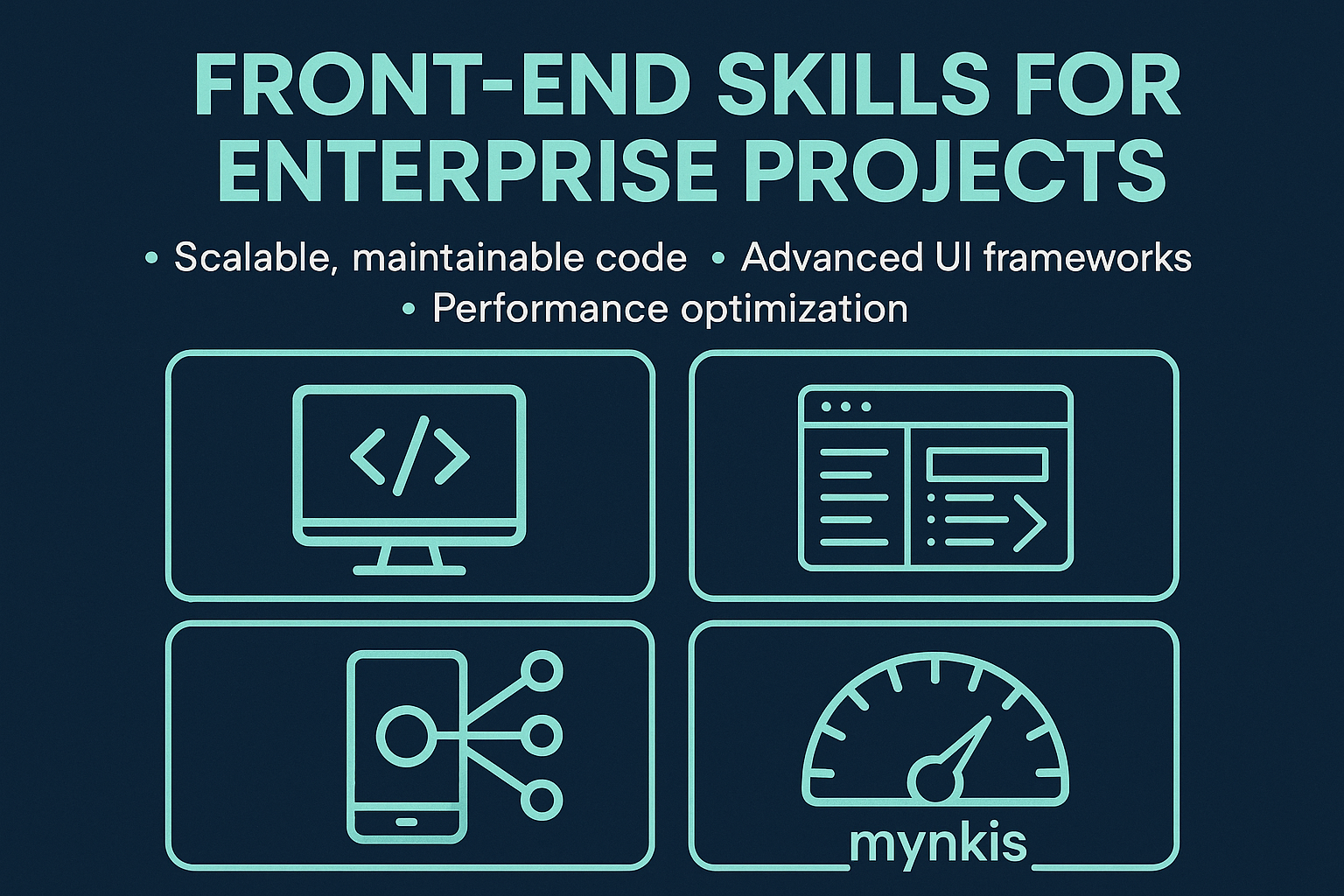Schedule a Demo
In the realm of custom software development, your front-end developers must be adept at using modern frameworks. React, Angular, and Vue.js aren't just tools; they're the backbone of creating interactive and efficient user interfaces. React, for example, excels in building single-page applications, delivering incredible user experiences due to its component-based architecture and robust ecosystem. I've seen numerous enterprise-level projects falter without a skilled React developer, unable to scale quickly or efficiently manage the myriad of components required for large, complex software solutions.
Front-end development isn't only about coding. An understanding of UI/UX principles significantly elevates the impact of enterprise web solutions. A savvy front-end developer collaborates with designers to bring concepts to life in ways that enhance usability, accessibility, and overall user satisfaction. Their role isn't to duplicate the mock-ups but to interpret them, ensuring animations and interactions are smooth and intuitive. From my experience, this interplay between development and design can turn a functional site into a delight to navigate.
The term 'responsive design' has been thrown around so much it's almost lost meaning. Yet, it's a non-negotiable skill for front-end developers. Enterprise software often requires cross-platform usability - from desktop to mobile devices. The best developers master CSS media queries and flexible grids, ensuring your software or customer portal not only looks great on a 27-inch monitor but also functions flawlessly on a smartphone screen. I've been part of projects where the final product was stellar in all aspects except for its responsiveness, hampering user engagement across different devices.
While prettiness counts, performance often trumps aesthetics in enterprise web solutions. Front-end developers must be the knights of optimization. From minifying code and lazy loading images to managing JavaScript load times, these techniques are critical to delivering fast-loading, efficient applications. I've seen, time and again, how optimizing for performance can dramatically increase user retention and decrease churn, particularly for high-traffic customer-facing portals.
In integrating custom software development into your enterprise strategy, SEO and accessibility aren't afterthoughts—they're foundational to user experience and search engine success. Front-end developers today need to understand how to make applications SEO-friendly with proper tags and semantic HTML. Additionally, adherence to accessibility standards such as WCAG ensures that your software solutions are inclusive, a criterion increasingly sought after in corporate accountability measures. I recently worked with a client whose commitment to accessibility led to not only improved user engagement but also enhanced their brand's reputation.
Version control is something of a safety net in custom software development. It's not just a way to manage different iterations of your code—it's essential for collaboration and maintaining integrity throughout the development lifecycle. Developers fluent in Git or SVN can merge changes from multiple team members efficiently, preventing dreaded conflicts and maintaining project momentum. From my years on the ground, nothing derails a project quicker than convoluted version control.
Underestimating the soft skills of front-end developers in enterprise web solutions can be a costly mistake. Whether it's bridging the gap between development and design teams or interfacing directly with stakeholders, clear communication can streamline a project and enhance outcomes. Developers who can explain complex issues succinctly, negotiate compromise, and actively contribute to team dynamics bring an often-overlooked, yet critical, value to enterprise projects. In my work, I've seen how team cohesion can elevate a good project to an exceptional one.
Integration capabilities, particularly with APIs, are crucial for modern enterprise web solutions. An adept front-end developer designs front-ends that consume and display backend data seamlessly, ensuring users interact with real-time, accurate information. Understanding RESTful APIs and knowing how to handle data from various formats like JSON or XML plays a pivotal role in crafting enterprise tools that aren't just superficial but deeply integrated with company workflows and systems. Having led projects that relied heavily on external service data, I cannot stress enough how non-negotiable solid API integration skills are.
Enterprise software often needs to work across a legion of platforms. Having front-end developers who can ensure cross-browser and cross-device compatibility eliminates a lot of headache. It's about creating an experience that feels fluid whether the user is opening your company's financial app in Chrome on a Windows machine, or Safari on an iPad. Through careful testing and tweaking, they mitigate discrepancies in behavior or appearance across different environments. I've sat in numerous strategy sessions where this capability literally cleared the project for take-off.
Front-end development within the sphere of custom software development must never neglect security concerns. Developing with security best practices helps protect the application and, by extension, your enterprise's data from vulnerabilities. With a rising tide of cyber-attacks on business applications, developers need to be aware of common security pitfalls like XSS and CSRF. In parallel with backend developers, ensuring secure data transmission and storage at the front end is mission-critical for any project I oversee.
The tech landscape is constantly morphing. Developers at the forefront of enterprise web solutions embrace continuous learning. Whether it's emerging CSS features or novel state management strategies, staying updated equips developers to enhance application performance and interactivity continuously. Having kept an eager eye on technology trends, I encourage developers to not only follow but to also adopt those advancements early, positioning the enterprise solutions they're a part of at the leading edge of innovation.
